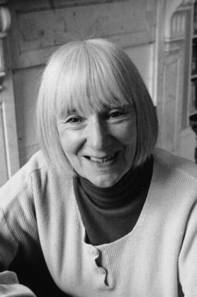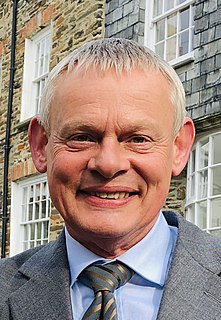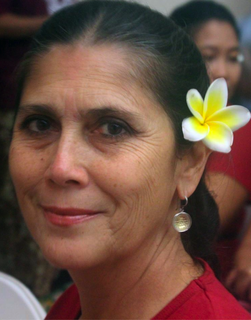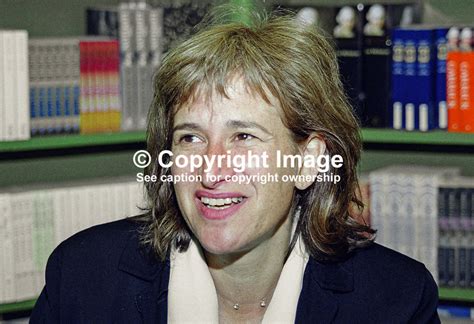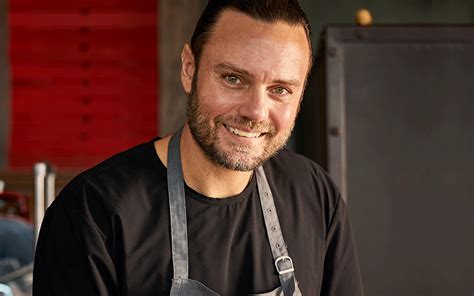A Quote by Dorothy Parker
Said after she had been seriously ill: The doctors were very brave about it.
Related Quotes
Pauline kept a scrapbook into which she pasted important articles that she had cut out of the newspapers. These were about the courageous deeds that had been done by people even if they only had one leg or couldn't see or had been dropped on their heads when they were babies. 'It's to make me brave,' she'd explained to Annika.
I found out when I was 18 that Dad had left my mother and the family before he realised he was ill and then died. When I asked Mum about it, she just sort of shrugged it off and said she'd thought I knew about it all along. Of course I hadn't, though I'm sure she must have been desperately unhappy at the time.
She'd always known he loved her, it had been the one certainty above all others that had never changed, but she had never said the words aloud and she had never meant them quite this way before. She had said it to him, and she hardly knew what she had meant. They were terrifying words, words to encompass a world.
The idea of the book ["The Japanese Lover"] came in a conversation that I had with a friend walking in the streets of New York. We were talking about our mothers, and I was telling her how old my mother was, and she was telling me about her mother. Her mother was Jewish, and she said that she was in a retirement home and that she had had a friend for 40 years that was a Japanese gardener. This person had been very important in my friend's upbringing.
Hillary called and it was a lovely call. And it was a tough call for her. I mean, I can imagine. Tougher for her than it would have been for me and for me, it would have been very, very difficult. She couldn`t have been nicer. She just said, "Congratulations, Donald.
Well done." And I said, "I want to thank you very much. You were a great competitor." She`s very strong and very smart.
I see in the FBI 302, which was put out on Memorial Day weekend in print about this big where you needed to use a magnifying glass to read it, but I read it twice, I saw something that really concerned me.It said Hillary Clinton can't remember her exit interview from the CIA because she had no memory for a period of time after she had a concussion. She was secretary of state when she had no memory. Now there's something really seriously wrong with it.
You remember that I told you it was safer not to know. But,' he went on, as his hands moved wuth their sure and practiced motion, 'I will tell you just a little, because you were so very brave.' Brave?' Annemarie asked, surprised. 'No, I wasn't. I was very frightened.' You risked your life.' But I didn't even think about that! I was only thinking of-' He interrupted her,smiling. 'That's all that brave means-not thinking about the dangers. Just thinking about what you must do. Of course you were frightened. I was too, today. But you kept your mind on what you had to do. So did I.
Occasionally, on screen, Barbara [Stanwyck] had a wary, watchful quality about her that I've noticed in other people who had bad childhoods; they tend to keep an eye on life because they don't think it can be trusted. After her mother was killed by a streetcar, she had been raised in Brooklyn by her sisters, and from things she said, I believe she had been abused as a child. She had lived an entirely different life than mine, that's for sure, which is one reason I found her so fascinating. I think her early life was one reason she had such authenticity as an actress, and as a person.
You have a traitor there, Aslan," said the Witch. Of course everyone present knew that she meant Edmund. But Edmund had got past thinking about himself after all he'd been through and after the talk he'd had that morning. He just went on looking at Aslan. It didn't seem to matter what the Witch said.
Insofar as she recognized at all that she was dreaming, she realized that she must be exploring her subconscious mind. She had heard it said that humans are supposed only to use about a tenth of their brains, and that no one was really clear what the other nine tenths were for, but she had certainly never heard it suggested that they were used for storing penguins.
Somehow, she had grown into a woman in between the fall of kings and collapse of worlds. Once she had been terrified of change. Then she had been terrified of losing Elend. Now her fears were more nebulous - worries of what would come after she was gone, worries of what would happen to the people of the empire if she failed.
A young pregnant wife has been hospitalized for a simple attack of appendicitis. The doctors had to apply ice to her stomach and when the treatments ended the doctors suggested that she abort the child, they told her it was the 'best solution' because the baby would be born with some disability but the young brave wife decided not to abort, and the child was born. That woman was my Mother and I was the child.

